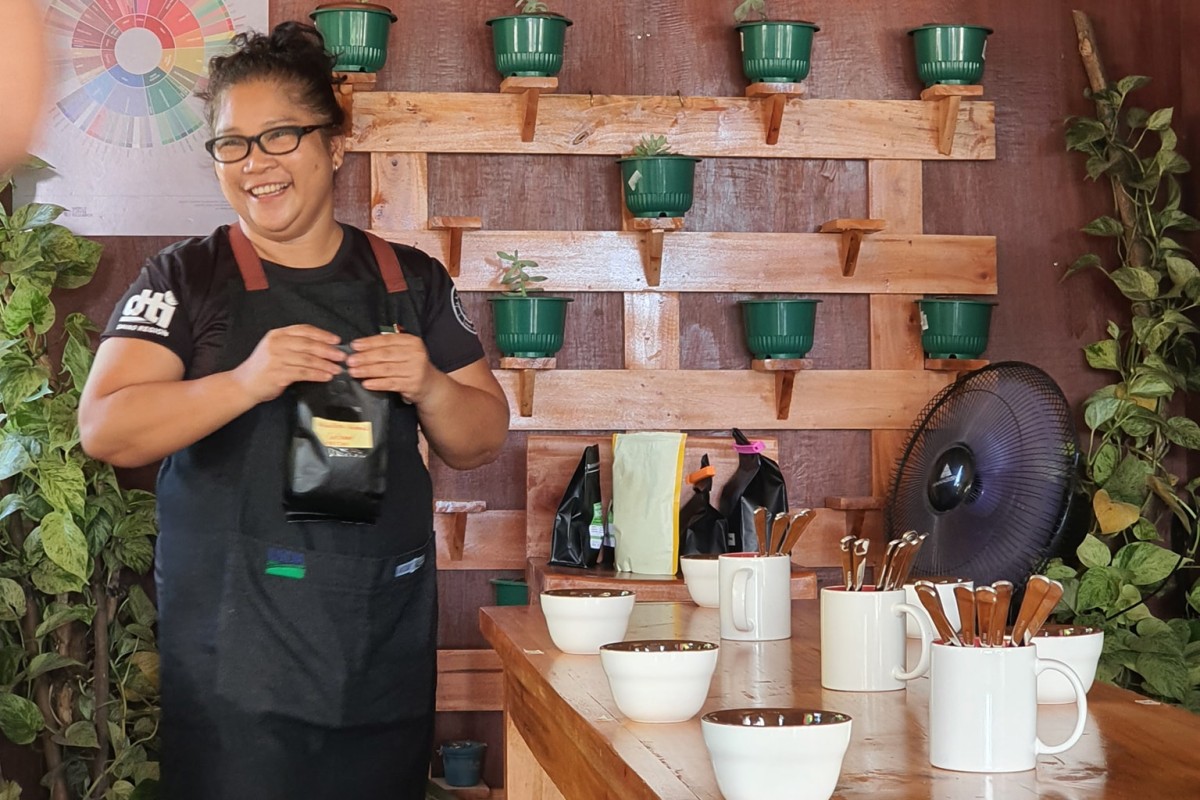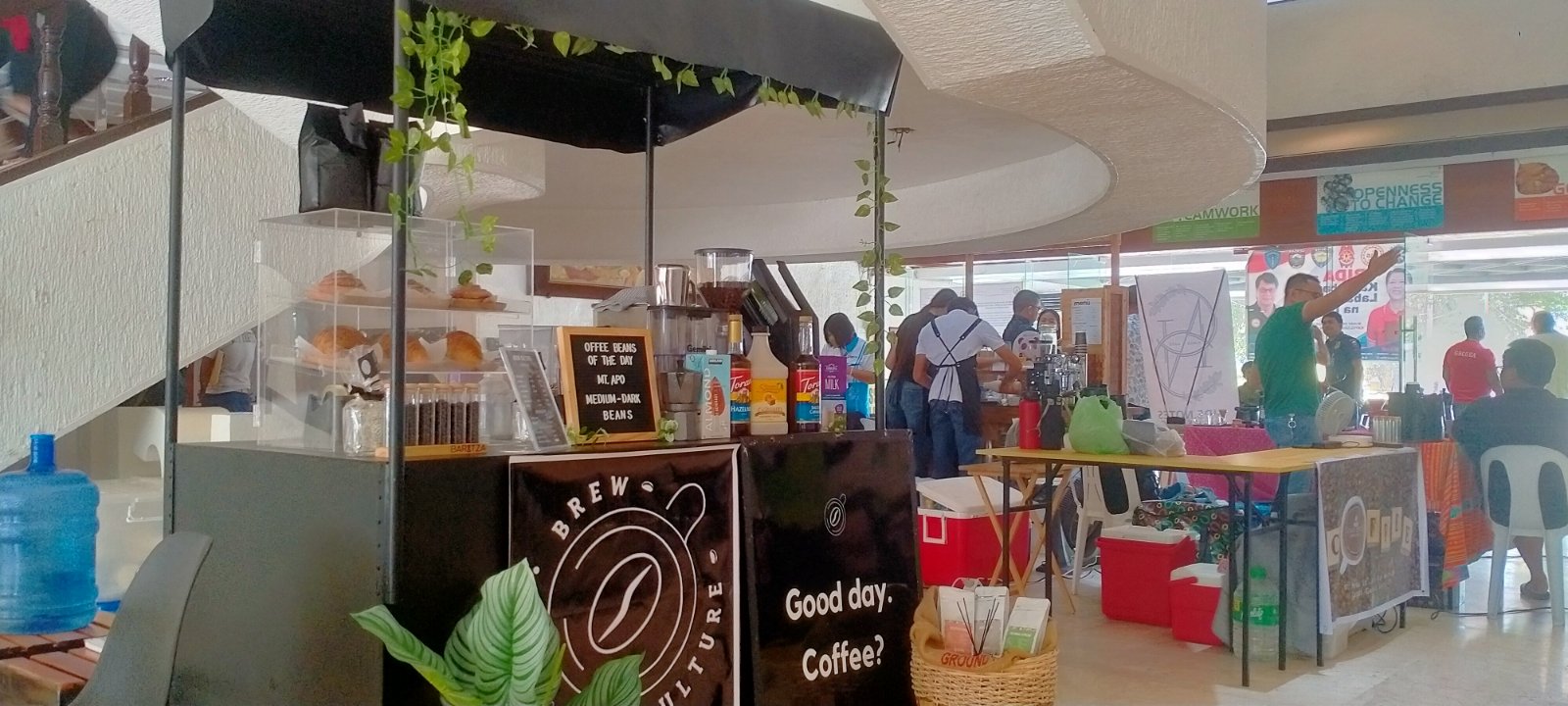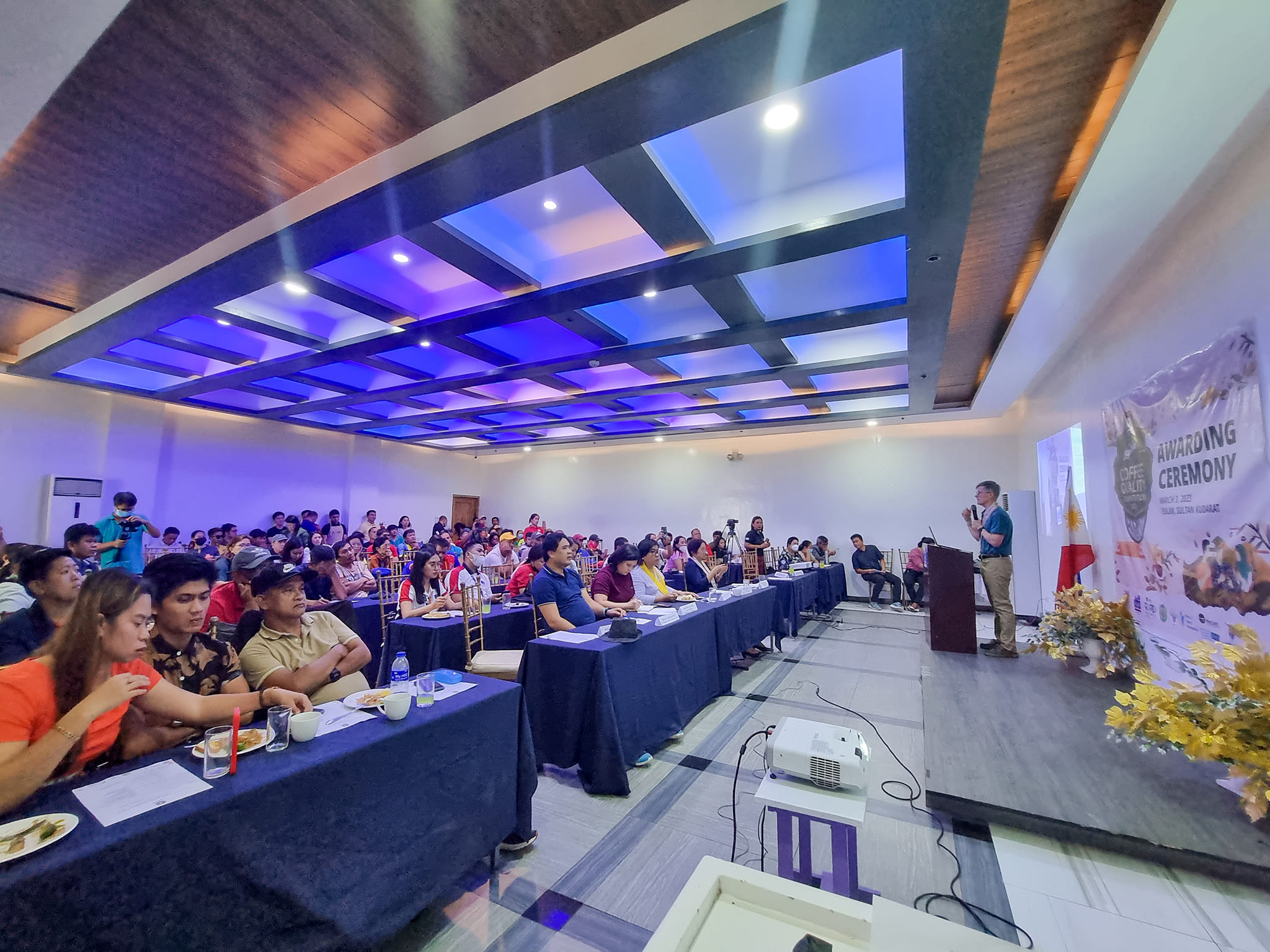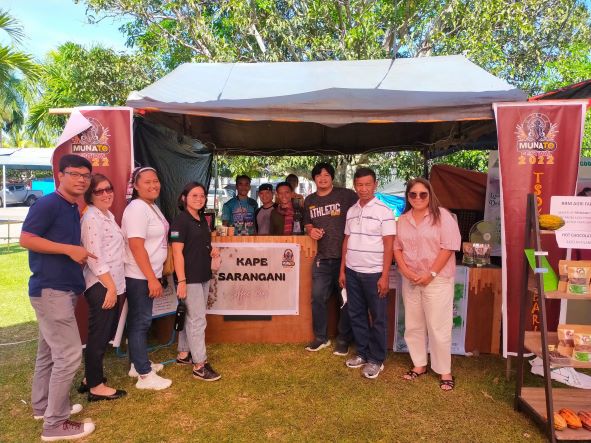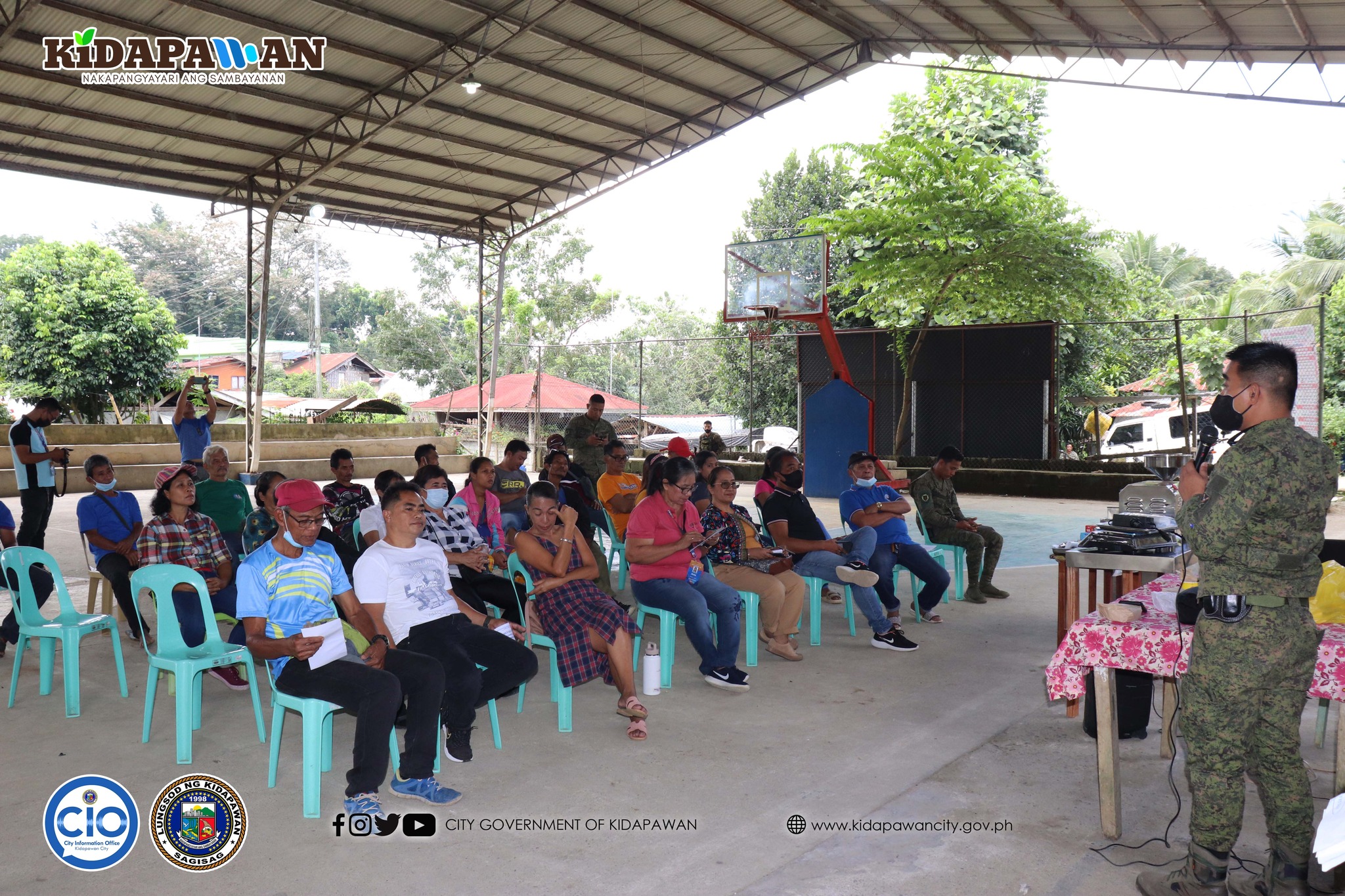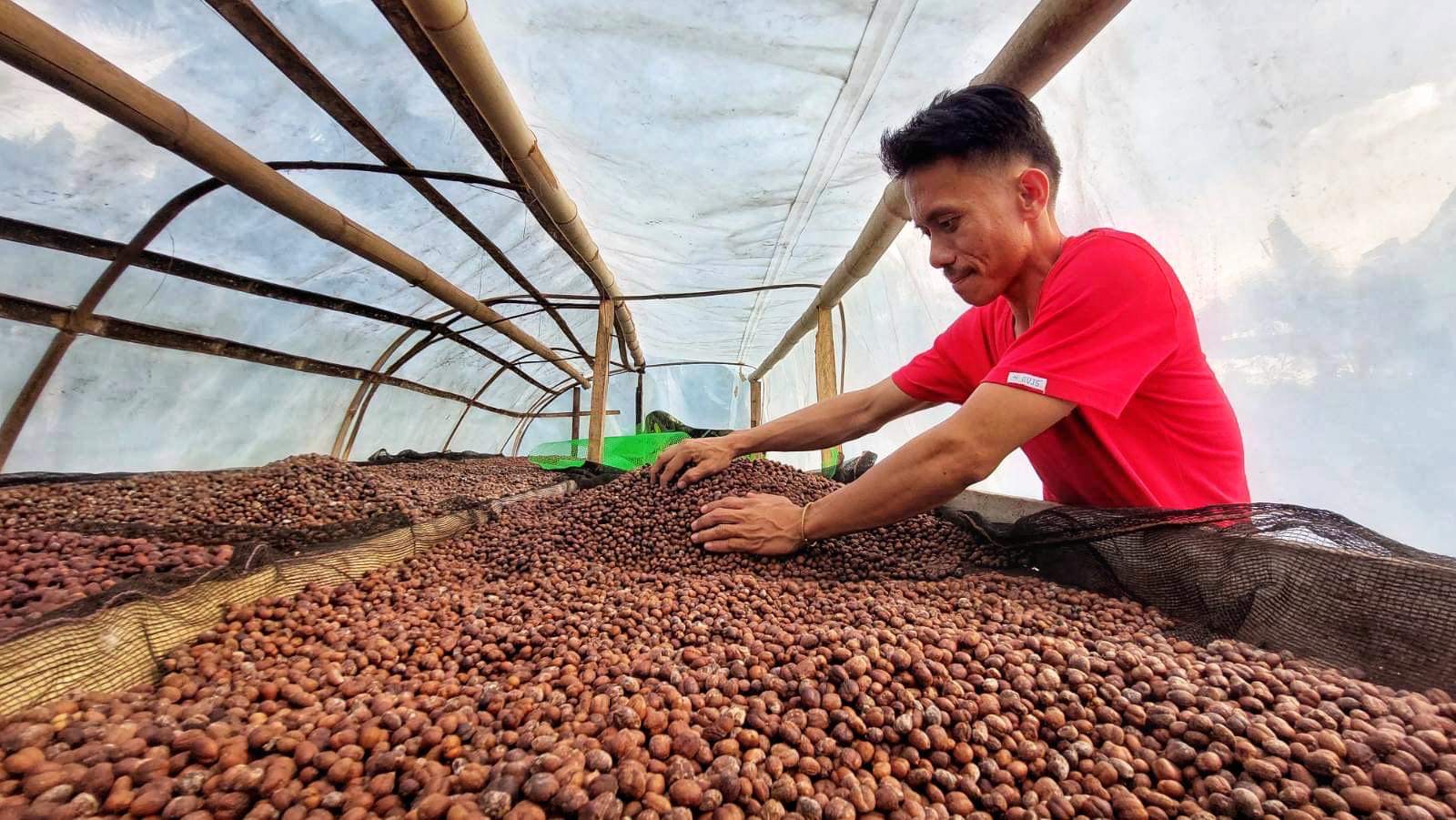
TACURONG CITY -- Eilleen's Bake & Brew in Tacurong City hosted a Coffee Appreciation event on April 30, 2022, to introduce a specialty coffee while highlighting the important role of coffee farmers in the industry.
The coffee appreciation event was facilitated by Q Professional Emeline Superioridad-Sabado.
“This event aims to introduce Fine Robusta to coffee consumers of Sultan Kudarat province and recognize the hard work of the people who produce it,” Superioridad-Sabado said.
The event provided an opportunity to showcase the diverse and high-quality coffee products from local farmers, as it also aimed to promote the appreciation of specialty coffee in the community. By highlighting the vital role of coffee farmers in the industry, the event was also able to promote sustainable and fair trade practices in coffee farming.
Featured in the event were the coffee of two young rising farmers from Sultan Kudarat, Rey John Basco and Denz Bert Deramos. Their coffee was also showcased at the Specialty Coffee Association Expo 2023 in Portland, Oregon, USA.
Moreover, the event showcased the winners of the Kape Dose Coffee Quality Competition 2023 - Bonifacio Noces (Top 3) and Rudy Labindao (Top 7), along with Arabica coffee from Cordillera and Bukidnon.
Tacurong City Tourism Officer Emelie Jamorabon, Department of Agriculture Region 12 representative Leah Catherine Pedral Magaway, Q Robusta Grader Arnel Cadeliña, Q Arabica Grader Kenneth Bajade, Q Master Roaster Denis Cocoba, key members of GenSan Coffee Association, and the local entrepreneurs from the city were also present at the event.

According to the 2021 data from the Philippine Statistics Authority (PSA) 12, the Soccsksargen Region has the largest area dedicated to coffee production in the country, with 26,172 hectares planted for the crop. Of this area, 78 percent, or 20,437 hectares are located in Sultan Kudarat province. The region ranked first in coffee production in 2021, contributing 34.66 percent (21,007.41 metric tons) to dried coffee and 34.66 percent (10,503.71 MT) to green coffee beans produced in the Philippines. Sultan Kudarat alone contributed 85.90 percent to the total regional production of both dried coffee and green coffee beans.
Sultan Kudarat or SK is the largest coffee-producing province in the Philippines in terms of volume. Superioridad-Sabado is a coffee enthusiast and industry insider, who has been living with coffee communities in the region since 2001.
She shared that before ACDI/VOCA's coffee project started in 2014, commercial coffee market was seen as the best venue for coffee production and marketing in the area. However, since the project began, there has been hope and progress in the industry. Working with partners and coffee professionals, the project has been successful in increasing coffee production quality as evidenced by the positive results of the Kape Dose Coffee Quality competition. Despite this success, the region still faces challenges in marketing its products to consumers.
Sultan Kudarat coffee has gained global recognition for its distinctive taste, but ironically, the very province that produces it has not fully experienced it yet.
"We possess enormous potential to promote and sell our top-quality Robusta coffee locally, rather than exporting it to other countries,” Superioridad-Sabado noted.
She dreams of a vibrant coffee community in Sultan Kudarat, where farmers can take pride in seeing their coffee enjoyed by customers in local coffee shops. Her vision includes a united and supportive community that works together to promote high-quality products.
Various stakeholders have been actively involved in supporting the coffee industry through numerous interventions, including the provision of technical assistance, special grants, and capacity-building initiatives for coffee farmers and other stakeholders. These efforts have been poised to promote the growth and sustainability of the coffee sector. It yielded positive results in terms of improving the quality of coffee produced and increasing market opportunities for local producers. (Genory Vanz Alfasain/Voice of the Youth Network)
